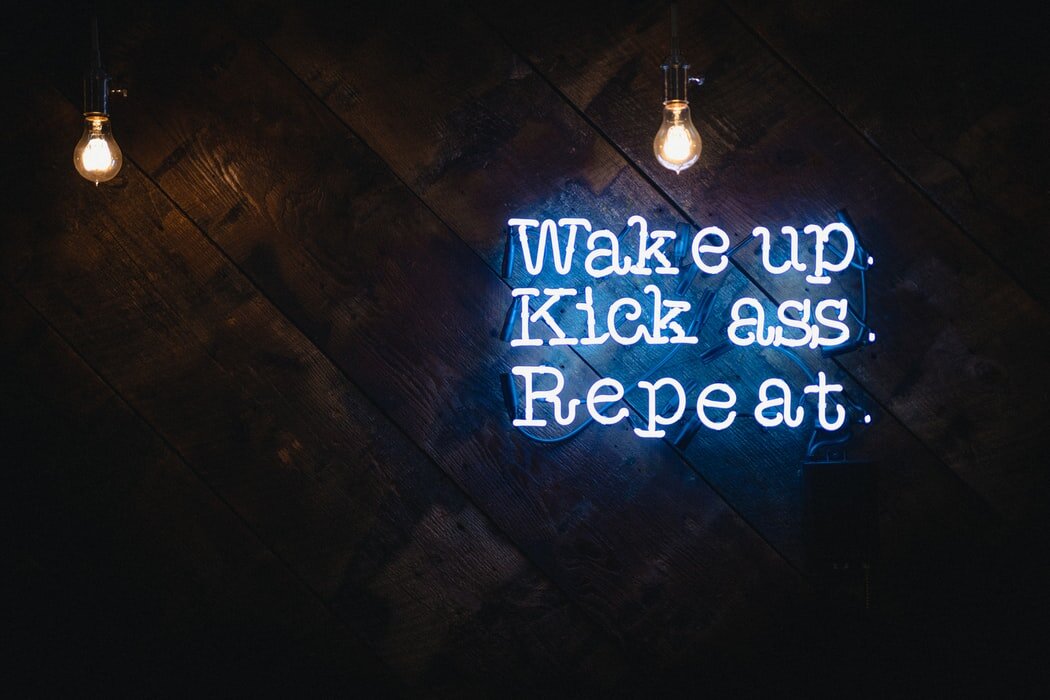Rise and Grind: Hustle Culture and Toxic Productivity
I've always had a complicated relationship with the term "hard work". It's not that I don't believe in it; I very much do. Besides, I'm no stranger to the concept of hard work paying off and needing to push past our limits. But the measure of what amount of work is enough has always eluded me. I work in Digital Marketing and I enjoy what I do, but you'll never catch me productively working for more than seven to eight hours a day. I get enough sleep, and I never miss meals. I have the time to see my friends and do things I love, like watching films, writing, reading and gardening. I have rarely been thankful for the beginning of a workweek, and I treasure my weekends. Work happens, so does life. Yet, there's a sense of never doing enough bubbling in the pit of my stomach. The cure, it seems, is to shift all focus onto work at the expense of anything that isn't.
Hustling, or performative workaholism, is the idea that dreams, power and status are achieved by always being "on". Mornings, afternoons and evenings are all sacrificed to performative workaholism. A real hustler's morning starts with waking up from a moderate to a poor night of sleep (from working late), checking numerous devices all at once and slurping down breakfast smoothies as they rush to catch the earliest commute to work. They rush from one meeting to the other at work, check tasks off their long lists, and take on more than what’s humanly possible. When they get off work (which is pretty late) they check emails deep into the night, while Netflix plays in the background. Next morning, the same routine repeats.
To the hustler, self-sacrifice is simply the beginning of a detrimental cycle. "Maximum Effort" bleeds into every part of the lifestyle, and every minute spent doing something non-productive is a minute wasted. No breaks, no leisure time, no vacation and poor sleep are things that are boast-worthy. One must meet deadlines and goals at lightning speed to match the pace of their world.
To be fair, I too am guilty of flirtation with toil glamour. Some part of me is in love with the idea of being busy all the time. At university, I spent far more time than necessary holed up in the library, writing papers and browsing through journals, often at the expense of making memories with friends. Sometimes I didn't even want to work, but I didn't think I could afford the distraction. When I went abroad for graduate studies, the pressure became more potent. Late nights were routine. With no one to haggle me about meals, I sometimes ate once a day, but only as a reward for finishing my daily work. In a city that was brimming with history and culture, I made more memories with university blocks and library booths than beautiful places and warm people. I did get the grades, though. And anaemia.
Luckily for me, my anaemia was pretty mild. Others aren't as fortunate. For starters, longer working hours are positively correlated with higher degrees of success but also greater symptoms of depression and anxiety. Internal and external resources may be exhausted, but they must persevere because of their nervous compulsion. With increased cortisol production, a stress hormone that weakens the immune system, illness becomes regular. Japan, a nation long-famed for its intense work culture and extreme hours, is the birthplace of the term karoshi–meaning "death from overwork". In 2017, Miwa Sado, a 31-year old journalist, suffered heart failure, after literally working herself to death by clocking in overtime for 159 hours. Brutal office culture is intertwined with collectivist culture, where going against community rules and regulations isn’t just frowned upon, but is also punishable. Resultantly, mental health is poor, and suicide is common. Despite efforts to increase awareness such as the Work Style Reform Bill's passing in 2018, change is slow. Death by overwork isn't a phenomenon limited to Japan alone; a World Health Organization study found that 745,000 people died from overworking in 2016. The pandemic has only further blurred the lines between work and home, and people on the payroll end up working longer hours.
Beneath the sheen and the glamour of performative workaholism, there lies one more problem. Those benefiting most from it aren't the ones doing it but those they are working for. David Heinemeier Hansson, author of It Doesn't Have To Be Crazy at Work, suggests that the vast majority of those beating the drums of hustle-mania are the managers, financiers, and owners. Extolling overwork primarily benefits them; case in point, Elon Musk, CEO of Tesla Motors worth 631 billion dollars, tweeted that "nobody ever changed the world on 40 hours a week". While hustling in the modern world was initially rooted in large scale tech companies, today, it has trickled down in some form or another into every organisation. This culture is reflected in Soviet-era propagandathat aimed to motivate the labour force with hymns and songs of worker productivity. Still, while those hymns, songs and the culture surrounding them were anti-capitalist in nature, the present context emphasises personal profit. Even though those eventually profiting may not be oneself.
When hustling drives you, deadlines, work demands, and external and internal pressures gain more power than you do. Stuck in autopilot with an excessive focus on the past or the future, we're never in the present. Perhaps this is a part of the hunt for self-purpose; work isn't something you do to get something you want but is a moral purpose. Any organisation that allows maximum utilisation of their space to fulfil this moral purpose is therefore good. However, Aidan Harper, the creator of the workweek shrinkage campaign 4 Day Week, argues that this culture is toxic. It creates the assumption that one's value is inherently tied up with productivity rather than humanity. If peers are competitive, then a typical workday or week becomes a catalyst to start questioning your own work ethic. In his book, Not Working: Why We Have to Stop, Josh Cohen, a psychoanalyst who specialises in burnout, makes a convincing case that this culture is driving us to despair and exhaustion by forcing us constantly to be "on", never allowing us to turn off our best selves to the world. Eventually, in this rat race, the most essential aspect of existence slips away from ourselves, the essence of being.
Productivity does pay off, and work can be incredibly fulfilling. But in the desperate rush to allocate all our resources, time, and effort into work, we forget to care for ourselves and those we love. Of course, we can all be brilliant people with big dreams, but do we have to do it all the time? We don't have to keep running till we break down, and we don't need to feel guilty about wanting a break. It might just make us healthier, happier and better at work.













